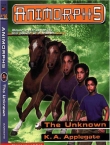
Текст книги "Burning Paradise"
Автор книги: Robert Charles Wilson
сообщить о нарушении
Текущая страница: 12 (всего у книги 20 страниц)
18
 JOPLIN, MISSOURI
JOPLIN, MISSOURI
ETHAN’S FIRST CONCERN WAS FOR Nerissa, who was hugely disappointed to discover that Cassie and Thomas and Leo hadn’t shown up at Werner Beck’s safe house.
Ethan was disappointed too, of course. But Ris seemed to lose all the fierce energy she had been drawing on for days. She looked suddenly years older, and the tone she took with Beck was querulous and irritable. “So where are they—do you have any idea where they are?”
Beck escorted them to a plain pine table in the kitchen of this small, plain house. “Sit down,” he said.
“And Leo! He’s your son, for Christ’s sake! Are you telling me you can’t find him?”
“We made plans for this contingency.”
“What plans? What do you mean?”
“If Leo’s doing what I told him to do, we should be able to catch up with him. And if Cassie and—what’s the boy’s name?”
Nerissa shot him a poisonous look. “Thomas.”
“If Cassie and Thomas are with him, that will be your opportunity to take them out of harm’s way. But obviously, Mrs. Iverson, I don’t know with any certainty where any of them are right now. I can’t snap my fingers and make them appear in front of you. You need to exercise some patience.”
“Do you care to explain any of that?”
“I’m as concerned about Leo as you are about your niece and nephew, and I’ll do everything I can to guarantee their safety. The situation is complex, and I’d be happy to talk about it, but in the meantime maybe you’d like to have a shower and a change of clothes? No offense, but you look like you could use it. I’ll put together a hot meal for all of us as soon as you’re refreshed. How about that?”
It was testimony to her fatigue that she sighed and nodded. Beck told her how to find the bathroom.
“I understand why you brought her here,” he said when she left the room. “But it’s frankly a little awkward.”
Ethan didn’t want to get into that discussion, at least not yet. “How many houses do you own, Werner?”
“Enough. They’re only tools. You could say, weapons of war.”
“The sims came for you, didn’t they?”
“I got out of my place in Illinois minutes ahead of them. I’d been there too long in any case—I knew it was probably compromised. I was packed and ready to go when they came to the door. They didn’t see me leave.”
Ethan had heard speculation about Beck and his money—especially his money—for years before Beck confided in him. It was rumored that Beck had patented some useful invention. Or that he had inherited a fortune back in the 1990s. Or that he had criminal connections. Or all three.
That he possessed both deep pockets and useful connections was undeniable. It was Beck who had organized and paid for the annual gatherings of Society members; it was Beck who had funded key research projects when educational institutions backed out; and after the murders of 2007 it had been Beck who helped out the survivors and their families, with cash and when necessary with goods otherwise unobtainable: new names, social security numbers, passports.
Not to mention his apparently inexhaustible supply of safe houses, properties he owned but kept unoccupied so that he could relocate himself or others on a moment’s notice. More than one Society member had called Beck paranoid, and maybe they were right. But it was, Ethan thought, at least a well-funded paranoia.
“The thing is,” Beck said, “you more or less walked into a war zone.
“The war came to us. And you supplied the address, Werner.”
“Because we need to stay in touch. But I didn’t expect you to turn up on the doorstep.”
“It seemed like logical thing to do, given that Cassie and Thomas are traveling with Leo.”
“I understand. But the situation is more complicated than you realize. I’ve been working with people who aren’t part of the Society. The Society was never more than one aspect of this war, Ethan. You can think of the Society as a kind of intelligence service, gathering information about the enemy. That’s good and useful work. But wars have to be fought. And they have to be fought by soldiers, not scholars.”
Ethan sat back in his chair as Beck got up to make coffee. The coffee machine on the faux-marble counter looked as if Beck had bought it yesterday. And maybe he had. The house itself still smelled untenanted, redolent of stale air and the chemical exhalations of undisturbed carpets and furniture. Ethan had a momentary vision of Beck as the kind of furtive animal that nests in abandoned buildings. But he looked martially efficient as he filled the machine’s reservoir and dropped a filter into its basket. He was fifty years old, Ethan guessed, maybe older, but he could have been a weatherworn drill sergeant, still able to hike as far as any recruit and count off twice as many pushups. “You always were unhappy with the Society,” Ethan said. In fact Beck’s private letters had so often dripped with contempt for his colleagues that Ethan occasionally wondered why Beck bothered with them at all.
“Well, I don’t really blame the Society. So much of what we believed was essentially speculative. Before you turned up those ice-core inclusions all we really had was some anomalous data, a history of academic persecution, and a mother lode of surmise. The Society connected the dots, and what emerged was this frankly ludicrous idea, that the radio-propagative layer was also an organism. From elsewhere. From outer space. Even before ’07, nobody wanted to say that out loud. A few of the old lions took it seriously—Fermi, Dyson, Hoyle—but even those guys never contemplated doing anything about it.”
“What could they do?”
“As I said, I don’t blame them. You learn to fly under the radar. Fine. But there’s something to be said for facing facts. And since 2007 we’ve been forced to face a few.” Coffee began to seep through the filter and drip into the pot, a metronomic sound. “Or anyway, I have. You want anything harder than cream in your coffee? You look like you could use it.”
“No. Thank you.” Ethan cleared his throat. “I was seven years in Vermont, living in a cabin in the woods. Does that count as facing facts?”
“You killed some sims, you said?”
He had already given Beck a partial account of events at the farm house. “Four altogether.”
“Well, good. You did what you had to. But that’s self-defense. You were planning for the next attack, but not beyond it.”
“I managed to survive.”
“Right, but what now? What next? Find a new place to hide? Somewhere even deeper in the woods?”
Ethan shrugged.
“I wasn’t willing to settle for that,” Beck said. “What I’ve done these past seven years is make contact with people outside the Society, people who’ve had direct experience of the hypercolony or the sims.”
“I wasn’t aware such people existed.”
“You think it’s only scientists and scholars who can draw an inference or trip over a dangerous piece of knowledge? Think about it. I have reason to believe the sims constitute a tiny fraction of the human population, far less than one in a million. But there are at least a few doctors and coroners who’ve examined unusual bodies. Police officers who’ve witnessed perplexing deaths. And plenty of people who asked awkward questions and received unsatisfying or threatening answers. I made it my business to find those people.”
“How?”
“All sorts of ways. Small-town and local newspapers are a good resource. Local stories usually make it to print before they can be filtered through the radiosphere—the copy goes straight to the composing desk. The press services would never pick up an item about a traffic accident that left green matter all over the road, or, if they did, the story would get lost in transmission—but local papers often publish it.”
“So you run down believe-it-or-not stories in rural newspapers?”
“Much more than that. I have contacts on three continents. I’ve been able to put together a network of people who understand what we’re dealing with—understand it viscerally, not just theoretically—and who are motivated to take action.”
“What kind of action?”
“Every living thing is vulnerable, Ethan. Even the hypercolony.”
“You honestly think you’ve discovered a way to hurt it?”
“If it couldn’t be hurt it would never have expended so much effort attempting to hurt us.”
“Do you realize what you’re admitting?”
Ethan looked up, startled: Nerissa stood in the kitchen doorway, wearing fresh clothes and carrying a towel. Beck displayed a thin-lipped flush of irritation, quickly suppressed. “I hope you’re feeling better, Mrs. Iverson. What is it you think I’m admitting?”
“That you provoked it—the hypercolony. It isn’t just afraid of what we might know, it’s afraid of what you might do with that knowledge.”
“If that’s true, I hope its fears are fully justified.”
“And the people who died?”
“I didn’t kill them.”
“You’ve involved your own son in this.”
“I could hardly exempt him.”
“And Thomas and Cassie?”
“Please don’t misunderstand. I want them out of harm’s way as much as you do. Your niece and nephew are of no use to me.”
Ethan let Nerissa tell the story of the sim Winston Bayliss: what he had said, how he had died, and especially what they had discovered when they visited his home in Montmorency. “Mrs. Bayliss had had recent surgery, so she must have been human. But her son was a sim. How is that possible? Do you know anything about that?”
Beck was silent for so long a time that Ethan wondered whether he might refuse to answer. Then he said, “I can show you some recent research. You too, Ethan. This is work you haven’t seen. Come with me.”
They followed Beck to the small living room of this small house and waited as he sorted through the contents of a cardboard filing box stashed behind the sofa. He extracted a manila folder and put it on the low coffee table. Ethan and Nerissa sat down while Beck pulled up a chair. “I should warn you. Some of the photographs are graphic.”
The folder contained rec ords of the work of an English veterinarian named Wyndham. According to Beck, Wyndham had been culturing pseudochondritic cells to explore their interaction with living tissue. For that purpose he had equipped a laboratory with cages of white mice and a few larger animals.
He had begun by introducing the foreign cells to cultivars of yeasts, fungi and bacteria, without any useful result. Tissue samples from metazoans were slightly more responsive, but the cultures quickly became necrotic.
When Wyndham injected the pseudochondritic cells directly into living mice, the effect was quickly lethal—a simultaneous eruption of multiple aggressive tumors. (The file contained a photograph of a euthanized mouse on a dissection board: the tumors with which its body was riddled looked to Ethan like bloody raspberries.) But when Wyndham dosed the creatures with the same cells in an aerosol preparation—when he put the mice in a sealed chamber and allowed them to inhale dry, extracted spores—they showed no obvious ill effects over weeks and even months.
Not that they were unaffected. Wyndham’s dissections revealed that the foreign cells had migrated to the reproductive system of the mice. Gametes of both sexes were significantly altered. Under the microscope (and here was another, thankfully less visceral photo), haploid cells appeared fatter and included new and unusual organelles. “But the truly significant effect,” Beck said, “was on the next generation.”
Another photo of a dissection—a messy one. Nerissa made a disgusted sound and recoiled. Ethan was queasily reminded of what he had seen after the raid on his farm house.
Once again the dead mouse had been splayed on a dissection board. It possessed what appeared to be a complete set of internal organs, reduced in size and displaced to the borders of the abdomen. The bulk of the body cavity was occupied by a gelatinous green mass, some of which had already liquefied and begun to drain away as the photograph was taken. Tendril of this mass passed into and among the otherwise normal organs. A partial dissection of the skull revealed a hollow sphere of neural matter surrounding the same gelatinous green core.
“God, enough!” Nerissa said, grimacing.
Beck gathered up the photographs. “This would appear to be how sims are created. Pseudochondritic cells are shed by the orbital mass of the hypercolony. Some fraction of them survive entry into the Earth’s atmosphere. Counting the enclosures in the ice cores lets us estimate the number of spores reaching the Earth’s surface in an average year. Inevitably, some small fraction of those spores will be inhaled by animals or human beings. Assuming even a single aspirated cell is able to alter all the gametes in a given individual, and given the density and distribution of fertile adult humans across the globe, there can’t be more than two or three hundred sims in all of North America—maybe four thousand altogether on the planet. Plus a population of altered animals, probably irrelevant but worth taking into consideration.”
Ethan said, “And the sims… are they fertile?”
“Do they breed more sims? No. Wyndham’s mice were sexually functional but genetically sterile. So were his dogs and other higher mammals. There are more photos—”
“No,” Nerissa said.
“Wyndham refused to work with primates, but we have every reason to believe the results would have been the same.”
“And these animals were otherwise normal?”
“Functionally and behaviorally. There was no way to tell a normal mouse from a sim, except with a scalpel.”
“Then Mrs. Bayliss wasn’t lying,” Nerissa said. “She really did give birth to that thing.”
Beck took two more photographs from his files. Ethan was relieved to see that they were micrographs, not images from a dissection table. “We’ve learned more about how the spores operate on the cellular level—this should interest you, Ethan.”
Whoever had produced these images must have had access to some very sophisticated equipment, maybe one of the new scanning electron microscopes, a technology that had only just become available when Ethan began to isolate ice-core specimens. “It’s a busy little factory,” Beck said. “But it would have to be, wouldn’t it, when you consider what these things are capable of. Some of its chemical constituents are familiar enough. The so-called genetic molecules: nitrogen, carbon, phosphorous. Purines, pyrimidines. Plus arsenic, some trace metals. But what stands out is the level of organization in the cell. These unfamiliar filamentous structures, you see them? Fractally folded threads of conductive carbon embedded in a sub-membrane, with dendritic extensions that seem to affect every part of the cell in some fashion—”
“Some of us aren’t biologists,” Nerissa said. “If you want me to understand this, you’ll have to dumb it down a little.”
“The details don’t matter as much as the function. Think about what these cells do. They travel immense distances through the vacuum of space. They duplicate themselves—at least so we surmise—by absorbing minerals and trace elements from the rocky or icy surface of asteroids, comets, planetesimals. They do this at temperatures far below the freezing point of water and with no driving force apart from faint sunlight and slow catalytic chemistry. They communicate with one another over enormous distances by generating microbursts of narrow-band radio-frequency energy. Which would be remarkable enough. But they do something that’s even more impressive. In our case, they tacked inward toward the sun and occupied a stable orbit around the Earth. Ethan’s research suggests they were present as much as forty thousand years ago, possibly longer. And once their numbers reached some critical threshold, they began to function as a coherent network. Do you understand what that means, Mrs. Iverson?”
“Only vaguely.”
“Their intercommunication became complex. The pseudochondritic cells interact with each other much the way brain cells do. And as soon as our species began to generate radio signals of its own, the so-called radiosphere started to function as a vast distributed transceiver, relaying radio waves around the globe but also analyzing those signals, making of itself an analytical computer more sophisticated than any such device we’ve ever dreamed of building.”
“So are they some form of life, or are they machines?”
“At the chemical level all living things can be construed as machines. We have no evidence that anyone designed these objects, though it’s possible. The likeliest scenario is that they evolved over an immense span of time and gradually acquired the characteristics they now possess. On the cellular level they’re immensely sophisticated; more importantly, the network they form is itself a unitary entity. The hypercolony. The hive, to borrow Ethan’s description. It’s the hypercolony that has learned to comprehend and manipulate human society, and it’s the hypercolony we have to destroy.”
If that was even remotely possible. Ethan inspected the micrographs. Cyberneticists had estimated that just one of these tiny cells was capable of faster and subtler calculations than even the massive transistorized computers operated by insurance companies or the Internal Revenue Service. The Society’s physicists thought the processing must operate at a deep, fundamental level of reality—the “quantum” level, a term Ethan didn’t entirely understand. But a more immediate question was vexing him. “Why haven’t I seen these micrographs before?”
“Why should you have?”
“Well, the Society—”
“Ethan, this isn’t the work of the Society. Wyndham is an independent researcher. I underwrote his work myself.”
“Nevertheless, I would have liked to have seen them.”
“I chose to limit the exposure of this information.”
“Why?”
“In order to protect it. Isn’t that obvious? For years we assumed the precautions the Society took were good enough to hide our work from the hypercolony. But the events of 2007 proved that theory disastrously wrong. We have no secrets and probably never did. The only conclusion I can draw is that the Society itself has been corrupted and infiltrated.”
“So you set up another circler of researchers.”
“More than one, and I’ve put up firewalls between them. If one
circle is compromised, the others remain secure. And where the Correspondence Society was basically a club for frustrated scholars, my people are better motivated.”
“Why, what motivates them?”
“Anger,” Beck said. “Fear.”
Beck repeated his promise that he would take Ethan and Nerissa to rendezvous with Leo (and presumably with Cassie and Thomas). But he refused to say anything more specific, except that it would be “a long trip.” Nerissa continued to press, which made for a sullen evening meal, after which she and Ethan retired to the upstairs bedroom.
The room was as spare as every other room in this barely-inhabited house. A single bed, muslin curtains over the window, a layer of undisturbed dust on the uncarpeted parquet floor. “He’s insane,” Nerissa said.
“He’s been right in the past.”
“I notice that’s not a denial.”
“If he’s paranoid, is that so hard to understand? Given the life he’s led?”
“A ridiculously privileged life. Heir to millions.”
True, but the whole story, at least as Ethan understood it, was more complex. Yes, Beck’s parents had been wealthy. Beck’s father had immigrated from Poland in the 1960s with a degree in engineering, some experience at the Nagórski plant in Starachowice, and an ambition to work with aircraft. Within a few years he had generated three modestly profitable patents and owned a small manufacturing facility in Portland that supplied parts to Boeing. He had married an American woman who died of pancreatic cancer after giving birth to their only child, Werner, and he had never remarried.
Beck’s father had been frugal by nature and had raised his son that way. When he died at the age of fifty-seven, he left Werner Beck a staggeringly diverse portfolio of investments, sole ownership of a successful company that was about to go public, and a work ethic only slightly less demanding than the disciplines practiced by Tibetan monks.
The fortune hadn’t diverted Beck from his academic career, which he had conducted with the same Spartan intensity. When Beck discovered the Correspondence Society he had immediately diverted some of his wealth to the support of clandestine research. And if Beck felt his generosity entitled him to a certain amount of deference, a little centrality in an otherwise decentralized organization, who could say he was wrong?
In 1990 Beck had married a former student who gave birth to one child, Leo, and who had little to do with the Society. She died in a car accident when Leo was very young. Her death must have been traumatic for Werner, but that was pure surmise on Ethan’s part: Beck had never spoken about his feelings and had seemed reluctant even to mention the loss. But it was after the death of his wife that Beck severed all contact with conventional academia and began to devote himself exclusively to the Society’s business.
“And the only reason you know any of this,” Nerissa said, “is that Beck told you. He could have been lying.”
“Why would he lie?” The money was real, Ethan thought. The work was real.
“He may not be clinically paranoid, but he’s almost certainly narcissistic. He needs to feel special, like he’s fulfilling some grandiose destiny. On bad days, he probably suspects his own inadequacy.”
“And you’re making that diagnosis based on what exactly?”
“Jesus, Ethan, think about it! He wants us to think he’s fighting a clandestine war, that he has a cadre of secret soldiers, that he’s figured out the hypercolony’s weaknesses…”
“Maybe it’s true.”
“It doesn’t feel true. It doesn’t even feel likely. What are you saying, you think he’s completely sane?”
“No. But I’m not sure any of us rises to that standard.” There was nothing left to do but sleep. Ethan turned down the bed, stripped to his underwear and lay down. Nerissa curled up beside him and adjusted the blankets. Within minutes her breathing steadied into a gentle burr.
They had grown accustomed to sharing a bed during the drive to Joplin. Given the circumstances, that hardly represented an erotic opportunity. It was, however, a small reminder that they had never been officially divorced. Separated and effectively divorced, divorced in all but name; nevertheless, he was lying here next to his legally-ordained wife, feeling a different uneasiness than he would have felt with a stranger. He couldn’t suppress all the memories she provoked. She had changed in seven years. But she smelled the same, and he found himself imagining she tasted the same—her mouth, her skin… not a wise thought.
He rolled away from her, toward the window. Nerissa had opened the curtains before she turned in, a habit of hers. She used to say that a view of the sky made her feel less confined. Apparently that was still true. But all Ethan could see was blackness and a few pale stars. Of course his old enemy was up there, too, ethereal and tirelessly observant, as enigmatic and as perversely fascinating as ever. Did he hate the hypercolony the way Beck claimed to? Of course he did. It had taken away everything that mattered to him. It was relentlessly, tirelessly lethal.
The difference was that he knew it didn’t hate him in return. He didn’t believe the hypercolony was capable of that or any other emotion. It had the magnificently indifferent lethality of a poisonous mushroom or a venomous insect.
He hated it, but he respected it. Maybe even admired it.
Would he help Beck exterminate it, if that was possible? Yes. And in the unlikely event they succeeded, he would rejoice. But unlike Beck, unlike Nerissa, he would also grieve for the passing of an extraordinary living thing.
And maybe that made him an unlikely soldier. And maybe Beck had known that about him all along.








